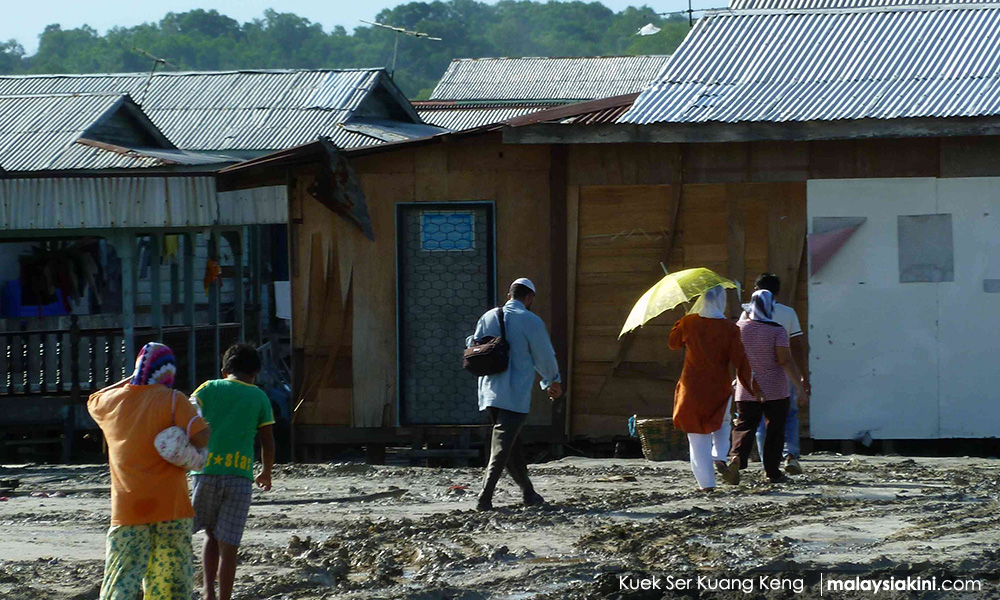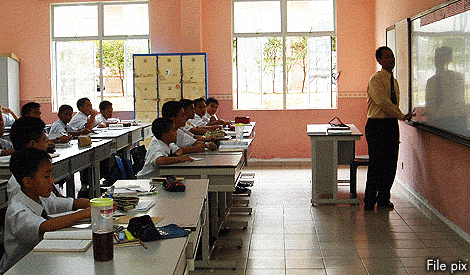
MP SPEAKS | Deputy Prime Minister Dr Wan Azizah Wan Ismail states that the BR1M/Bantuan Sara Hidup programme is a good idea but does not reach its intended target. Reforming this programme is important to help solve the serious issue of urban poverty in our country.
Although report after report has highlighted the need to address urban poverty in a holistic, fundamental way, the previous administration had typically opted for piecemeal gestures that did not focus on the structural causes and ramifications of urban poverty.
According to official statistics, Malaysia has been urbanising rapidly since the 1980s to the point where the urban population comprised over 70 percent of the total population in 2010. Some researchers have also forecast that by the year 2030, three-quarters of Malaysia’s population will be urban.
While this rapid urbanisation has been a direct result of the nation’s industrialisation, it has also exerted enormous costs, chief of which has been rising economic inequality in our cities not only in terms of income but also spending.
As cited in the World Bank’s Malaysia Economic Monitor released in 2017, that year’s Household Expenditure Survey indicated a marked unevenness in the composition of household expenditure across income brackets, with households in the lowest-income segments spending close to 40 percent of their expenditure on food compared to about 25 percent among the highest-income segments.
Unicef’s study earlier this year also highlighted another worrying finding - alarming rates of malnutrition among urban poor children. Such findings are critical as it indicates the underwhelming care provided, and dearth of opportunities to access, even the most basic of necessities due to financial limitations.
The urban poor are the most vulnerable in this situation as the rising cost of living is also linked to stagnant wages, lack of affordable housing, increase in household debts and lower retirement savings.
Although the government has started to address this by, among others, zero rating the GST (as we wait for the re-introduction of SST), any policy to help the poor should not only be focused on increasing purchasing power alone – although that must also be rigorously pursued.
Essentially what impacts the economically and socially marginalised the most is being locked out of a lot of the social capital and infrastructure that are readily available for everyone else.
Social mobility is key to enabling the poor to lift themselves out of poverty and not be stuck in that same cycle of for generations.
In a 2016 study conducted by the Khazanah Research Institute, education is clearly the ‘silver bullet' - the study found that only 33 percent of children of parents with no formal education have tertiary education compared to 92 percent of children born to parents with tertiary education. However, top-down educational policies are not enough, no matter how well thought-out.
Bolsa Familia example
A major barrier to educational attainment among the urban poor is the lack of a familial and social support structure usually afforded by the more well-off.

Hence, formal schooling for the urban poor should also be accompanied by strengthened support systems, such as my experience with Project Mentari, an after-school programme which combined educational assistance with community involvement.
Government programmes can no longer be piecemeal: principally, we need to get the longer term structural policies relating to education and social safety nets right but also enhance other initiatives – such as support for nutrition, health, childcare.
Examples of these include the MyKasih programme administered by the MyKasih Foundation. Emulating Brazil’s successful Bolsa Familia, the programme channels cash transfers to mothers on the condition that their children remain in school.
The Bolsa Familia has proven successful in improving not only education but also health outcomes for Brazil’s poor, as one of the other conditions is that children are vaccinated.
Surely, there is scope here for expanding the scale of a programme like MyKasih and transforming our existing cash transfers (such as Bantuan Sara Hidup, formerly known as BR1M) into a targeted programme like the Bolsa Familia.
Further to that, the urban poor must also be equipped with skill sets that allow them to gain greater economic opportunities – this is where TVET and entrepreneurship programmes are essential for the longer term.
We need to move on from solving inequality of income to solving inequality of opportunity. Social mobility ultimately is about spreading the opportunity which calls for a more inclusive development policy.
In the long run, we need to place a lot more emphasis on socio-economic policies that help the underprivileged realise their potential in a conducive environment.
Of course, it important to keep the country on a solid fiscal and monetary footing but we also need to address the social questions with policies and programmes that strengthen the people, the very soul of our economy.
NIK NAZMI NIK AHMAD is Setiawangsa member of Parliament. -Mkini


No comments:
Post a Comment
Note: Only a member of this blog may post a comment.